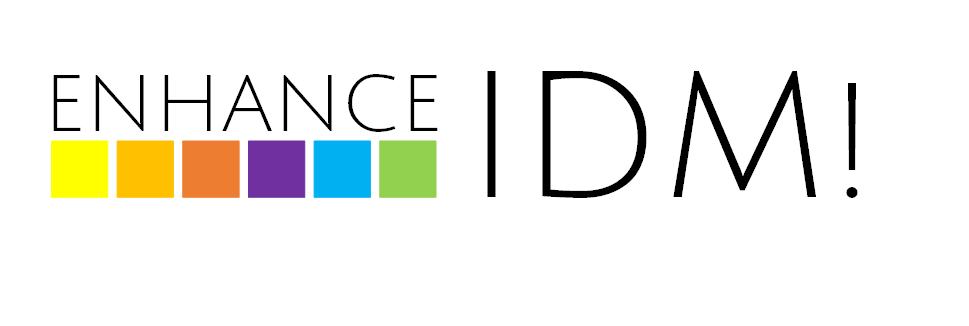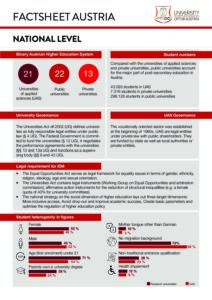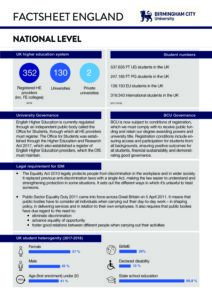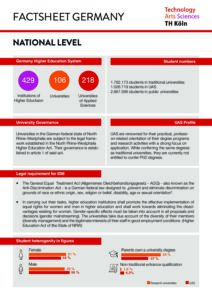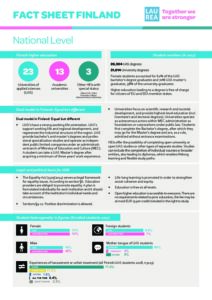FH Oberösterreich (FHOÖ)

FHOÖ University of Applied Sciences (UAS) Upper Austria was founded in 1994 and is the biggest UAS in Austria with 4 different locations in 4 cities and 62 degree programmes. Each campus is dedicated to a specific topic: Medical Engineering & Applied Social Sciences (Linz), Engineering (Wels), Management (Steyr), Informatics, Communications & Media (Hagenberg). Among others, FHO is member in international cooperation networks such as IAUP, EUA, IEEE, EPU Uninet, CEEMAN, EAIE, SIETAR, I.S.L.E. network and the Austro-American Society. FHOÖ is one of the most research intense universities of applied sciences in the German-speaking world. FHOÖ’s diversity policy is structurally embedded in the organisation. The implementation of diversity-relevant measures is monitored by the diversity manager and the management board. Situated in the region of Upper Austria it seeks to appeal local as well as international students of all kinds.

With around 22,500 students from 80 countries, Birmingham City University (BCU), a publicly funded Higher Education Institution, is a large, diverse and increasingly popular place to study. University provides a wide range of taught undergraduate and postgraduate programmes, Masters and Doctoral level research, and also delivers many Knowledge Transfer, Community Engagement and Professional Development initiatives. All the activities of the organisation embody its core values of excellence, focus on people, working in partnership, fairness and integrity. It has a highly diverse student population located in a city centre learning environment. Nearly 70% of the University’s students are classed as commuter students travelling to their studies from homes in Birmingham and the West Midlands region. Nearly a quarter are mature and almost half (48%) are black or minority ethnic. More than half come from economically deprived areas and four out of every ten are the first in their families to enter higher education. In addition around 10% of the students have a declared disability. Specific groups of students are not marginalised nor singled out by offering ‘special’ practices. BCU brings in extensive working knowledge in demographic diversity, particularly disabilities, ethnical/religious/ linguistic background, age, social mobility.
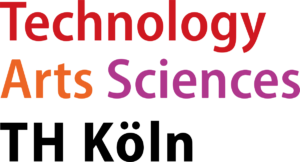
Technische Hochschule Köln (TH Köln) is Germany’s largest University of Applied Sciences with about 24.000 students and 420 professors. 11 faculties offer over 80 courses of study in engineering and social sciences as well as in the humanities, ranging from architecture via mechanical engineering and social work to business law and languages. The wide range of subjects yields excellent opportunities for interdisciplinary projects and cooperation. The university is characterized by its top-quality teaching and diverse research spectrum. The university cultivates close relations with universities both at home and abroad. TH Köln has extensive experience in EU research collaboration and partnerships. TH Köln was awarded the logo “HR Excellence in Research” by the European Commission as the result of its participation in the HRS4R-initiative for quality assurance in personnel management. The intention is to increase the awareness of the research culture at universities, to create better working conditions for researchers and to promote academic careers. The university conducts cutting-edge research on pedagogy in higher education, focusing on diversity as a core principle. It has also undertaken research on Educational Diversity and is currently partnering with University of Duisburg-Essen in a federally funded state-wide program on Diversity Management in Teaching and Learning at Higher Education Institutions. TH Köln is committed to a concept of Diversity that is related to individual learning processes (“Learning Diversity”). It is an integral part of all activities of organizational development that are being carried out throughout the institution. TH Köln brings in extensive working knowledge in disciplinary diversity.

Laurea University of Applied Sciences is the third largest university of applied science in Finland offering a wide variety of bachelor and master degrees on seven campuses (in total 28 programmes, 8 are taught in English). Laurea is a limited company with 500 employees and nearly 8,000 students. The students are at the centre in Laurea – they exert influence and participate in developing Laurea’s operations together with the staff. Currently, six out of the 16 bachelor programs and two out of the 12 master’s degrees are offered fully in English hosting students from all around the world. Laurea has a long history of multidisciplinary user-driven approach to regional development in well-being and social integrity for individuals, groups and communities in different situations in life. Laurea has a specially designed teaching model called “Learning by Developing” which allows flexible and appreciative ways for studying. This model fosters a variety of prediction models, problem-solving approaches, different cognitive styles and learning strategies. Thus, students are made to familiarize themselves with their own knowledge and value structures. This is done by campus-based online or blended learning, learning through projects, work-based learning, and developing entrepreneurship during studies and recognition of prior learnings as part of the studies. Laurea is thus well suited to address the segment of cognitive diversity.
